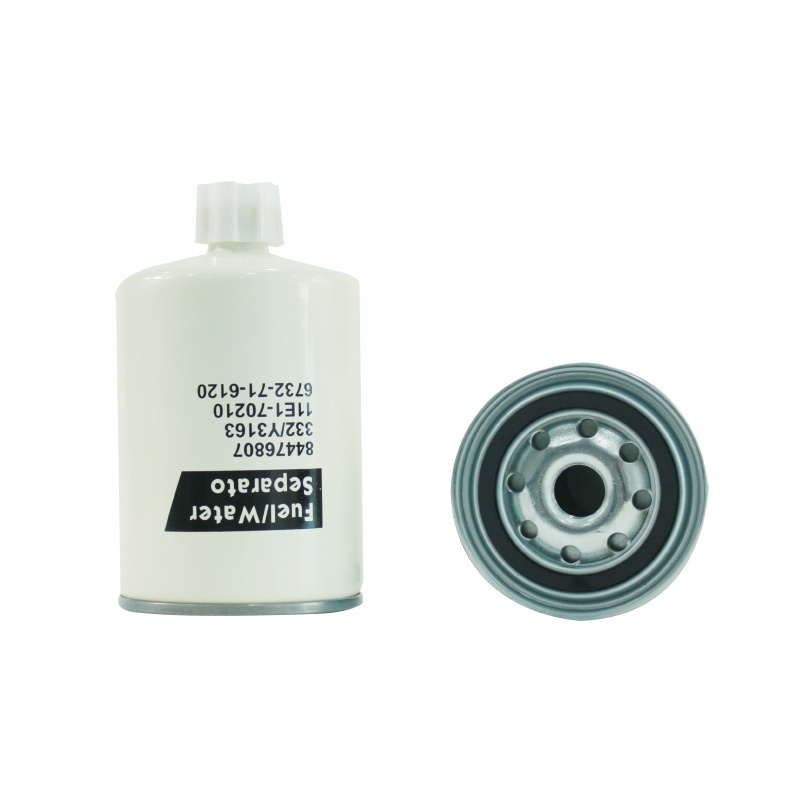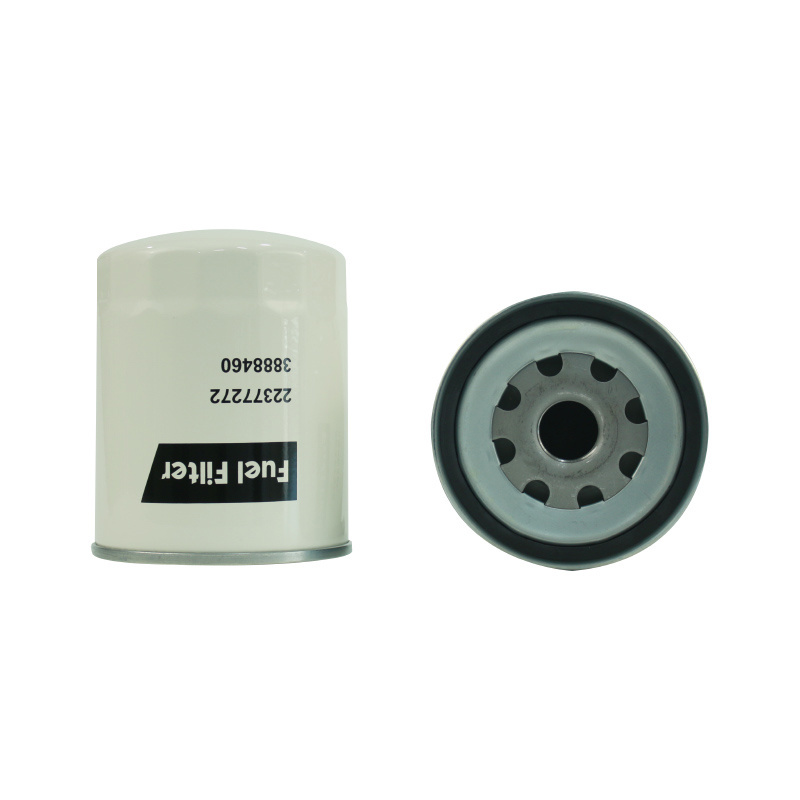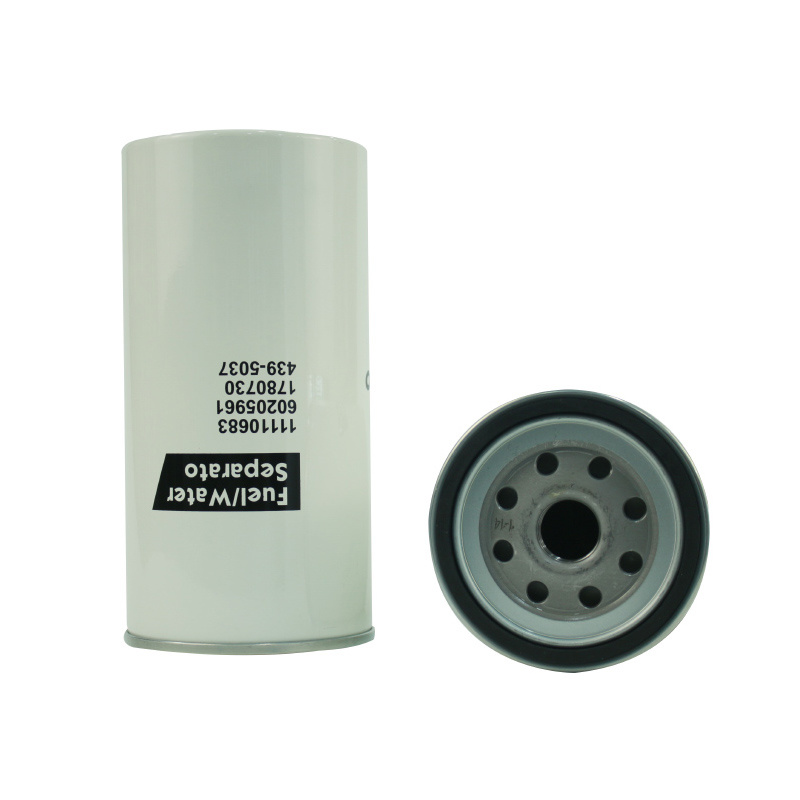Welcome to Hebei Takai Vehicle Parts Technology Co., Ltd.
The Connection Between Fuel Filtration and Environmental Compliance: Ensuring Sustainability in Industrial Operations
Release Time:
Jun 25,2025
The Connection Between Fuel Filtration and Environmental Compliance Fuel filtration systems play a pivotal role in industrial operations, serving as a crucial barrier against contaminants that can compromise fuel quality and operational efficiency. However, their significance extends far beyond mere functionality. In today's environmentally conscious world, effective fuel filtration is intrinsical
The Connection Between Fuel Filtration and Environmental Compliance
Fuel filtration systems play a pivotal role in industrial operations, serving as a crucial barrier against contaminants that can compromise fuel quality and operational efficiency. However, their significance extends far beyond mere functionality. In today's environmentally conscious world, effective fuel filtration is intrinsically linked to environmental compliance. This article delves into the multifaceted relationship between fuel filtration and environmental compliance, exploring how it benefits industries, enhances sustainability, and meets stringent regulatory requirements.
Understanding Fuel Filtration in Industrial Applications
Fuel filtration involves the removal of impurities from fuel before it is used in engines and machinery. These impurities can include dirt, water, rust, and microbial growth, which, if left unchecked, can lead to equipment failure, increased emissions, and other operational issues. By implementing robust fuel filtration systems, industries can ensure the seamless operation of their equipment while minimizing the environmental impact associated with fuel usage.
The Role of Fuel Filtration in Operational Efficiency
Effective fuel filtration systems significantly enhance operational efficiency. Clean fuel ensures optimal combustion, which leads to better engine performance and reduced emissions. This efficiency is essential for industries relying on heavy machinery, as it directly impacts productivity and operational costs.
Key Benefits of Fuel Filtration on Efficiency
1. **Reduced Downtime**: Clean fuel minimizes the risk of equipment malfunctions, thereby reducing downtime and maintenance costs.
2. **Improved Fuel Economy**: Efficient combustion resulting from clean fuel leads to better fuel economy, saving costs over time.
3. **Extended Equipment Lifespan**: By preventing contaminants from causing wear and tear, effective fuel filtration extends the operational lifespan of machinery.
Environmental Compliance: Why It Matters
With the ever-increasing pressure to adhere to environmental regulations, industries must prioritize compliance to avoid penalties and reputational damage. Environmental compliance refers to the adherence to laws and regulations designed to protect the environment. This includes managing emissions, waste disposal, and resource usage effectively.
Fuel Filtration as a Compliance Mechanism
Fuel filtration is not just about enhancing efficiency; it is a critical component in achieving environmental compliance. Regulatory bodies impose strict guidelines regarding emissions and waste management, and effective fuel filtration can help industries meet these standards.
Key Environmental Regulations Affecting Fuel Filtration
1. **Clean Air Act**: This U.S. law regulates air emissions from stationary and mobile sources, making it imperative for industries to control emissions through clean fuel usage.
2. **Water Pollution Control Act**: Proper filtration systems can prevent fuel contaminants from entering water bodies, aiding in compliance with this act.
3. **Resource Conservation and Recovery Act**: This act governs the disposal of solid and hazardous waste, which includes residual fuel contaminants.
The Environmental Impact of Ineffective Fuel Filtration
Neglecting fuel filtration can lead to severe environmental consequences. Contaminated fuel not only affects machinery performance but also contributes to pollution and environmental degradation.
Consequences of Poor Fuel Filtration
1. **Increased Emissions**: Combustion of contaminated fuel leads to higher emissions of pollutants such as nitrogen oxides, carbon monoxide, and particulate matter.
2. **Soil and Water Contamination**: Spills and leaks from poorly filtered fuel sources can contaminate soil and waterways, harming ecosystems and wildlife.
3. **Health Risks**: Pollutants resulting from inefficient fuel combustion can pose health risks to workers and nearby communities.
The Economics of Fuel Filtration and Compliance
Investing in high-quality fuel filtration systems may seem costly initially, but the long-term savings and benefits far outweigh the expenses. Enhanced operational efficiency, reduced environmental fines, and improved corporate reputation contribute to a robust return on investment.
Cost-Benefit Analysis of Fuel Filtration Systems
1. **Initial Investment vs. Long-Term Savings**: While there is an upfront cost to installing advanced filtration systems, the reduction in maintenance, fuel costs, and penalties can lead to substantial savings.
2. **Insurance and Liability Costs**: Companies that prioritize compliance and sustainability may benefit from lower insurance premiums and reduced liability risks.
3. **Reputation and Market Position**: Firms recognized for their environmental commitment can enhance their market position, attracting eco-conscious consumers and partners.
Choosing the Right Fuel Filtration System
Selecting an appropriate fuel filtration system is crucial for maximizing benefits and ensuring compliance. Factors to consider include the type of fuel, the specific impurities to be filtered, and the operational environment.
Key Considerations for Selection
1. **Type of Fuel**: Different fuels have varying contamination risks, necessitating tailored filtration solutions.
2. **Filtration Technology**: Advanced technologies such as coalescing filters, water separators, and ultra-filtration systems offer superior filtration capabilities.
3. **Maintenance Requirements**: Consider the ease of maintenance and replacement parts availability when selecting a filtration system.
Future Trends in Fuel Filtration and Environmental Compliance
As industries evolve, so too do the technologies and methodologies associated with fuel filtration. Emerging trends indicate a shift toward more sustainable practices and advanced filtration technologies.
Innovations in Fuel Filtration Technology
1. **Biodegradable Filters**: Development of environmentally friendly filter materials that reduce waste and environmental impact.
2. **Smart Filtration Systems**: Integration of IoT technology for real-time monitoring of fuel quality and system performance.
3. **Sustainability Practices**: Increased emphasis on waste reduction and resource conservation within the filtration process itself.
Best Practices for Maintaining Compliance Through Fuel Filtration
To ensure continuous compliance and operational efficiency, industries should adopt best practices in fuel filtration.
Effective Maintenance Strategies
1. **Regular System Inspections**: Conduct routine inspections to identify potential issues before they escalate.
2. **Employee Training**: Ensure employees are well-trained in the operation and maintenance of fuel filtration systems.
3. **Documentation and Record-Keeping**: Maintain thorough records of filtration system performance and compliance efforts to aid in audits and inspections.
Conclusion
In summary, the connection between fuel filtration and environmental compliance is undeniable. Effective fuel filtration systems not only enhance operational efficiency but also play a crucial role in meeting regulatory standards and promoting sustainability. As industries continue to navigate the complexities of environmental compliance, prioritizing robust fuel filtration will remain a critical strategy to ensure both operational success and environmental stewardship.
FAQs
1. What contaminants can fuel filtration systems remove?
Fuel filtration systems can effectively remove dirt, water, rust, microbial growth, and other impurities that can affect fuel quality.
2. How often should fuel filtration systems be serviced?
It is recommended to service fuel filtration systems regularly, depending on usage and manufacturer guidelines, to ensure optimal performance.
3. What are the consequences of not using fuel filtration systems?
Neglecting fuel filtration can lead to increased emissions, equipment failures, and potential legal penalties for non-compliance.
4. Can fuel filtration systems help reduce operational costs?
Yes, by improving combustion efficiency and reducing maintenance needs, effective fuel filtration systems can significantly lower operational costs.
5. What innovations are shaping the future of fuel filtration?
Emerging trends include biodegradable filters, smart filtration technologies, and increased focus on sustainability practices within the filtration process.
You Can Also Learn More About Industry Trends












